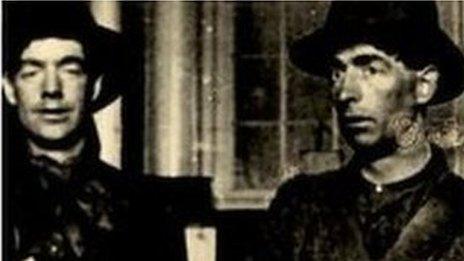1916 Easter Rising: Photographs of aftermath published online
- Published
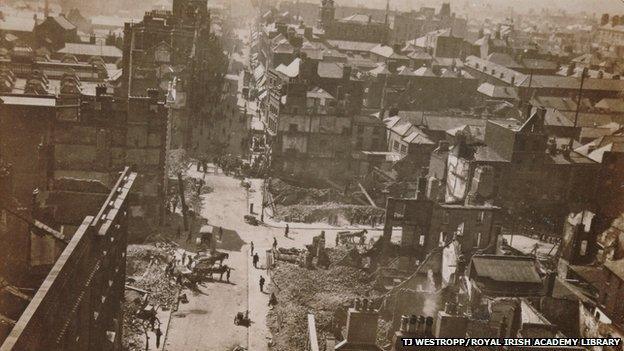
An aerial photograph of destroyed buildings in Dublin's Henry Street in May 1916, looking westward from Nelson's Pillar
Photographs showing a bird's eye view of the destruction caused to Dublin city centre during the 1916 Easter Rising have been published online.
The pictures were taken three weeks after the rebellion against British rule was quashed by troops.
They are the work of the Limerick-born scholar, Thomas Johnson Westropp.
He climbed onto the 121ft high Dublin landmark, Nelson's Pillar, and onto the roofs of surviving buildings to capture aerial images of the bomb damage.
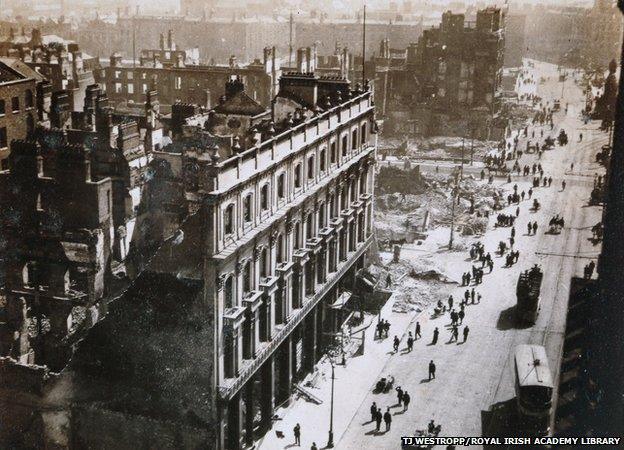
Aerial view of the damage caused to Dublin's Imperial hotel and Clery's department store, looking southward from Nelson's Pillar
Much of the Irish capital's inner city was reduced to rubble during Easter week 1916, as British troops bombed key buildings from where rebels had launched attacks.
'Archival commitment'
Westropp went to great lengths and even greater heights to document the destruction of the city centre, and to ensure his record was preserved for future reference.
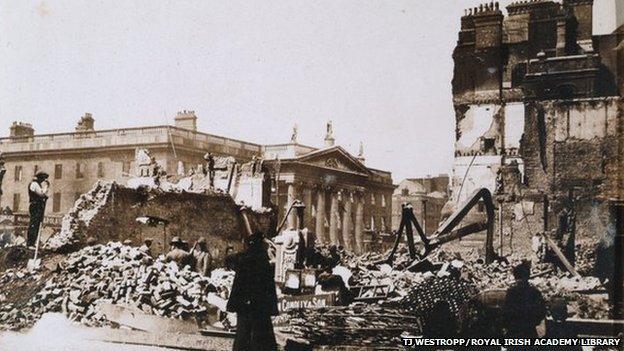
Dublin's General Post Office (GPO), which was used as the rebels' headquarters during the rising, photographed from a vantage point on Abbey St on 17 May 1916

View of quayside damage along the River Liffey, after British troops targeted rebel-held buildings from a gun ship
He took the photographs on 17 and 18 May 1916 and quickly archived 40 images in an album called 'Ruined buildings in Dublin after the Sinn Féin rebellion'.
The following month, he presented copies of the album to the Royal Irish Academy (RIA) and Trinity College, Dublin.
His 99-year-old photographs have now been published online by the Digital Repository of Ireland , external, an internet project led by the RIA.
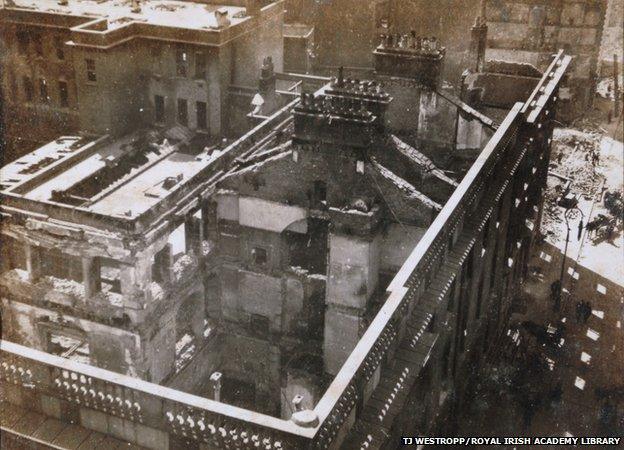
An aerial view of the ruins of the GPO
RIA librarian Siobhan Fitzpatrick paid tribute to Westropp's "archival commitment".
"The fact that he had the images developed, printed and mounted in an album within a week conveys a certain sense of urgency and the fact that he deposited the album with the academy for safe keeping shows his strong archival sense and the importance he placed on preserving the record," she said.
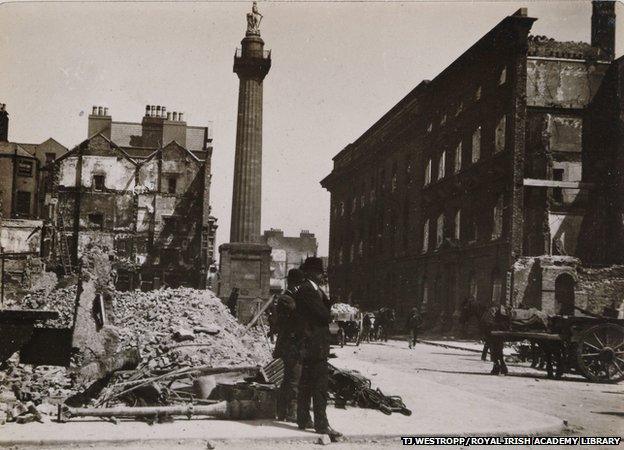
TJ Westropp climbed more than 100ft up Nelson's Pillar to take aerial photographs of the ruined GPO
Westropp, who was in his mid 50s at the time, had studied civil engineering at Trinity College before taking a job as a surveyor.
Dr Sharon Webb from the Digital Repository of Ireland said Westropp's approach to documenting the destruction is "representative of his training and of the accuracy and care with which he approached his work".
"When we look beyond the buildings, the rubble, the dust, we get a sense of what it might have been like to stand amongst the chaotic aftermath: photos in the collection depict the clean-up operation, the onlookers, the workers, the British soldiers standing guard, and life getting back to 'normal' as people walk past the ruins," Dr Webb wrote in her blog, external.
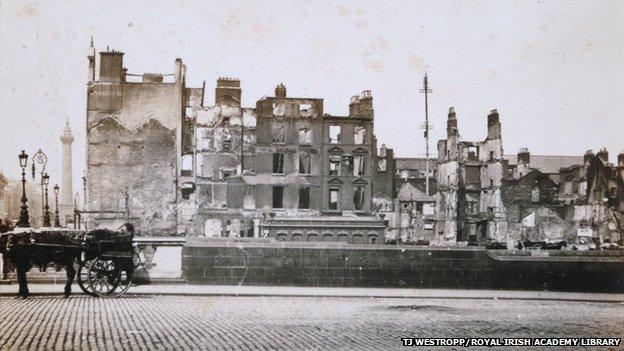
Ruined buildings along Eden Quay in Dublin, photographed by Thomas Johnson Westropp on 17 May 1916
The repository is an online resource dedicated to preserving and disseminating data relating to the island's social and cultural heritage.
- Published17 January 2014
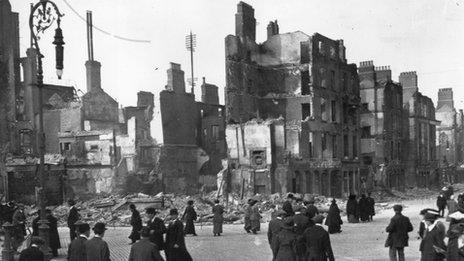
- Published8 August 2012
